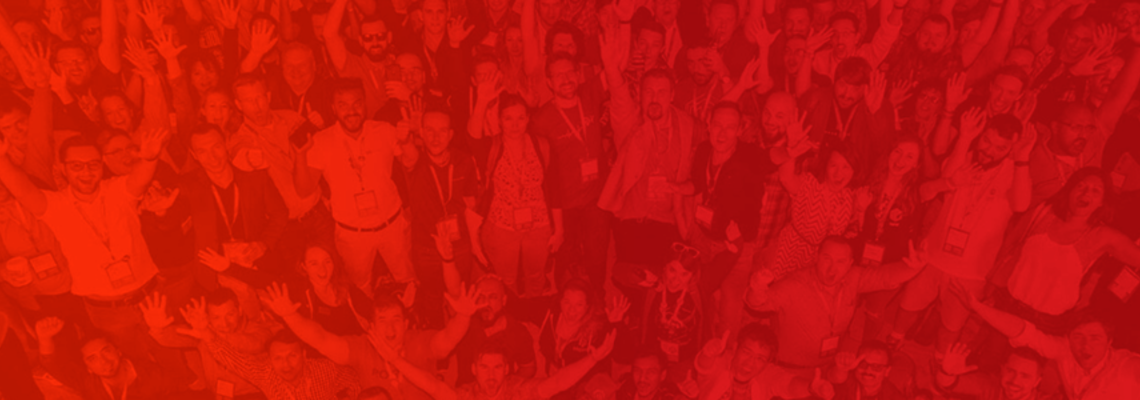
Representing the Community: Speaker Selection Process for MA Connect
For last year’s first Magento Association (MA) Connect, on 29 April 2021, we made a few changes to the process of how speakers were selected. The aim was to achieve better representation of our diverse community on the event’s virtual stage and in the eyes of participants. The process was also followed for the second MA Connect event of 2021, on 21 October.
To make the selection process more transparent, this article walks through it in detail. If you have ideas for ways to improve speaker selection in 2022, please do not hesitate to reach out and share them! The MA Diversity & Inclusion Committee and the MA Connect Planning Committee welcome any and all feedback.
First, the Call for Content
Before even publishing event registration, MA launches a Call for Content — via an online form — to begin promoting the event to the speaker community. From there, it takes quite a bit of time to evaluate speaker proposals as well as for speakers to prepare their talks and materials. This is why the Call for Content precedes all other event promotions.
How Do We Promote the Call for Content?
An important part in building a diverse speaker set is outreach — through as many channels as possible, including direct, personal outreach to potential speakers from underrepresented groups.
The Call for Content was first promoted in a newsletter to all Magento Association members. This was followed by social media efforts across various channels, as well as posting to the Magento group on Mobilize. (If you want to speak at Magento events, you should check out Mobilize!) Via private messages and emails, we also reached out to some candidates individually, encouraging them to submit a topic to the Call for Content.
Next, the Speaker Selection
Out of the 18 available speaking slots at MA Connect in April 2021, four were designed for sponsors. This meant that 14 speaking slots for the daylong event needed to be filled by speakers from the Call for Content submissions.
To select speakers, MA first established a speaker selection panel. MA members were encouraged to participate in this panel via an open call within our newsletter and through social media. In some cases, volunteers were asked to take part individually because of their active participation in the community — as speakers, event organizers, or within the Magento Association.
The speaker selection panel for MA Connect in April 2021 included: James Cowie, Kate Rusakova, Salvatore Capritta, Thien-Lan Weber, and Vatsal Shah. And, for the October 2021: Asim Munshi, Bharat Maheriya, James Cowie, Marsha Naidoo, Sonal Puri, Thien-Lan Weber, Vatsal Shah, Vijay Golani, and Vlad Stanescu. Similar to the goals of speaker selection, the members of the panel come from different backgrounds, both geographically and professionally, within the Magento ecosystem.
Once formed, the speaker selection panel executed blind voting on Call for Content submissions, meaning that names of brands, companies, and speakers were removed, as well as any other information on the speaker. Only information on the proposed topic and the intended audience was provided to the reviewers.
There was a slight difference in the voting itself between the April and October editions of MA Connect, though. For the April 2021 event, reviewers rated each based on innovation, practical value, and relevance to the Magento community. For October 2021, reviewers were asked to give only a “yes” or “no” to each topic submission. A few other noticeable occurrences included:
- April topics with the highest average rating were selected, which ultimately elevated a diverse pool of speakers from the get-go (i.e., varied job roles, genders, company types, etc.). After review, it was agreed that MA would stick with the order of topics provided after the voting.
- Also for April’s event, one “manual” adjustment was made, which was to include one additional topic targeted toward merchants in order to provide more value to our merchant community.
- October topics with the highest percentage of “yes” votes were selected. The top 10 covered a great selection, but did not result in as much diversity as we’d seen in April. After discussions with reviewers, it was decided to introduce two additional topics in order to yield a more diverse set of speakers and an of topics/presentation types.
- In both April and October, Sonja Franz coordinated the speaker selection process and presented the voting results, but did not take part in voting. Votes by panelists that raised a conflict of interest (i.e., a personal submission or that of a colleague) were eliminated from consideration.
How Diverse Was the Selection of Speakers?
There are many factors that should be considered in assessing diversity of content. For speaker selection, these could be (but are not limited to) a speaker’s job role, company (type), gender, country, ethnicity, and age. Some of this data was requested as part of the MA Connect Call for Content form, but not all.
You can’t manage what you can’t measure.
While this is true, in the spirit of data economy, there are often individualized reservations related to asking about personal details as they should, ideally, be irrelevant to a content selection process. Why does someone need to know about my ethnicity when I would rather my topic is chosen because it offers great insights?
But, should personal variables be considered? Because representation of speaker diversity may very well be just as important for our community’s future, why not offer the chance for anyone from an underrepresented group to find a role model through our content?
Ideas from you, our community, as to how we can solve the riddle of asking “only what’s relevant” while also measuring if our speaker selection is diverse are welcomed.
Out of the data we have of from speaker submissions to the Calls for Content in 2021, here are some numbers that will offer you some insights into diversity of submitters and speakers. You may notice that sometimes a set of percentages don't always add up to exactly 100%. This is a result of rounding to the nearest whole number.
April 2021
Speaker Experience
- 76% of submissions came from people who considered themselves “experienced”, 17% “very experienced”, and 7% with “no experience” in public speaking.
- Among selected speakers, 85% considered themselves “experienced” and 15% “very experienced”.
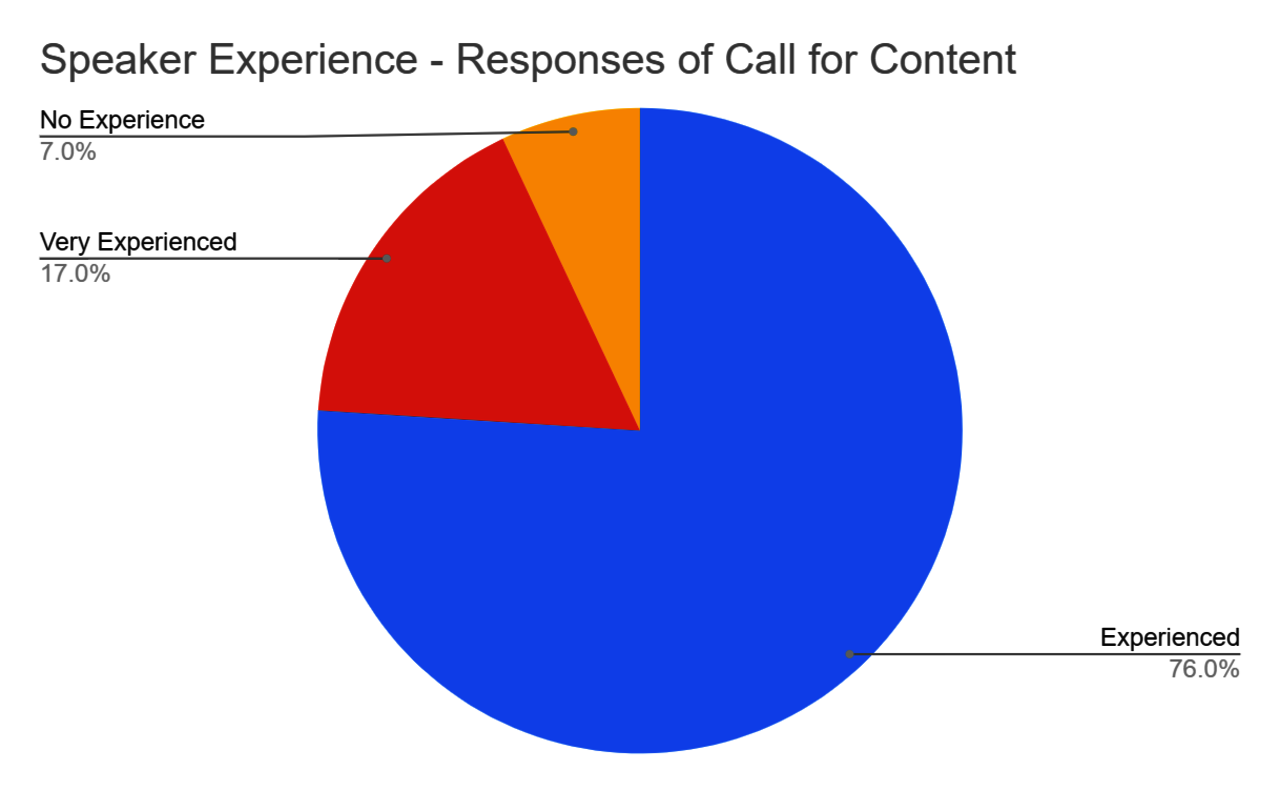
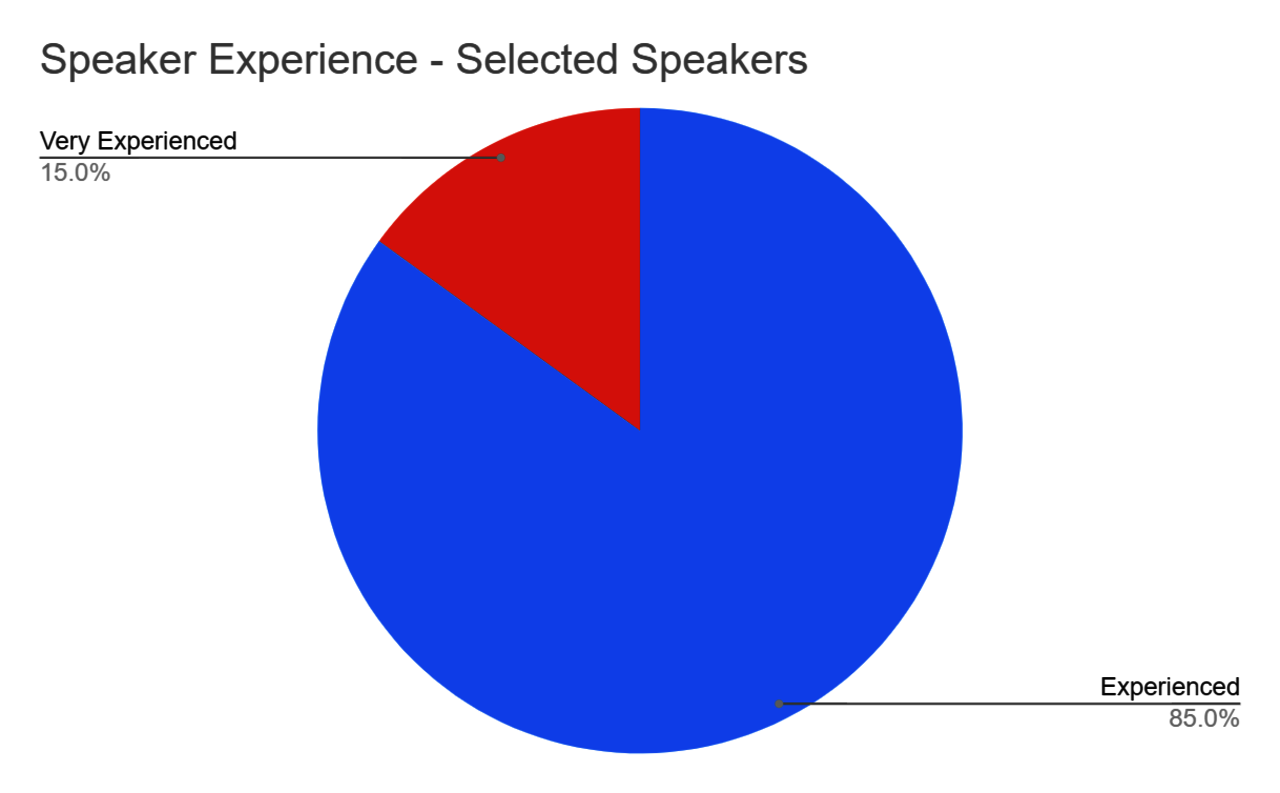
Company types
We did not ask people to enter the type of company they work for; however, we did request company names. These numbers are concluded from those company names.
- More than 50% of submissions came from people working at solution integrators (e.g., web development agencies)
- When it came to selected speakers, things were a bit more evenly spread, encompassing solution integrators, service providers/hosting companies, freelancers, merchants, and Adobe (in our world, that’s a separate company type, right?).
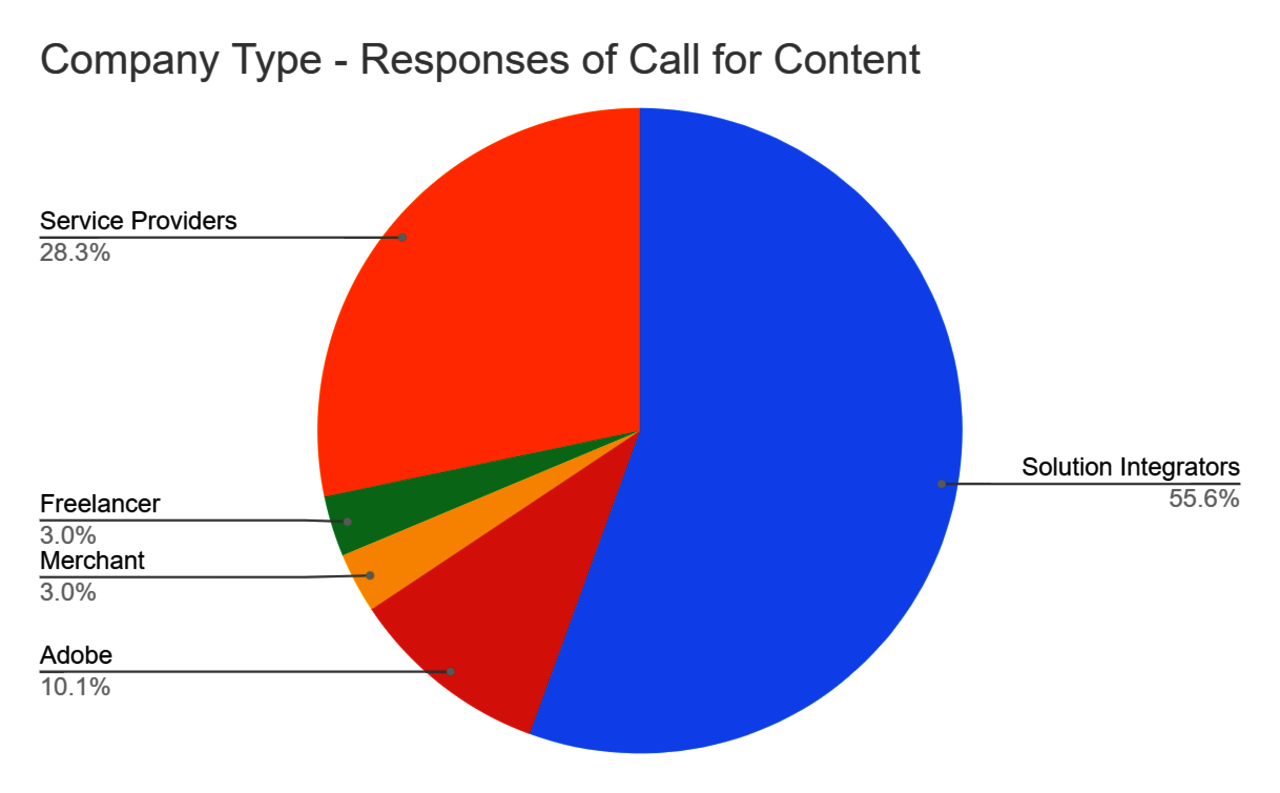
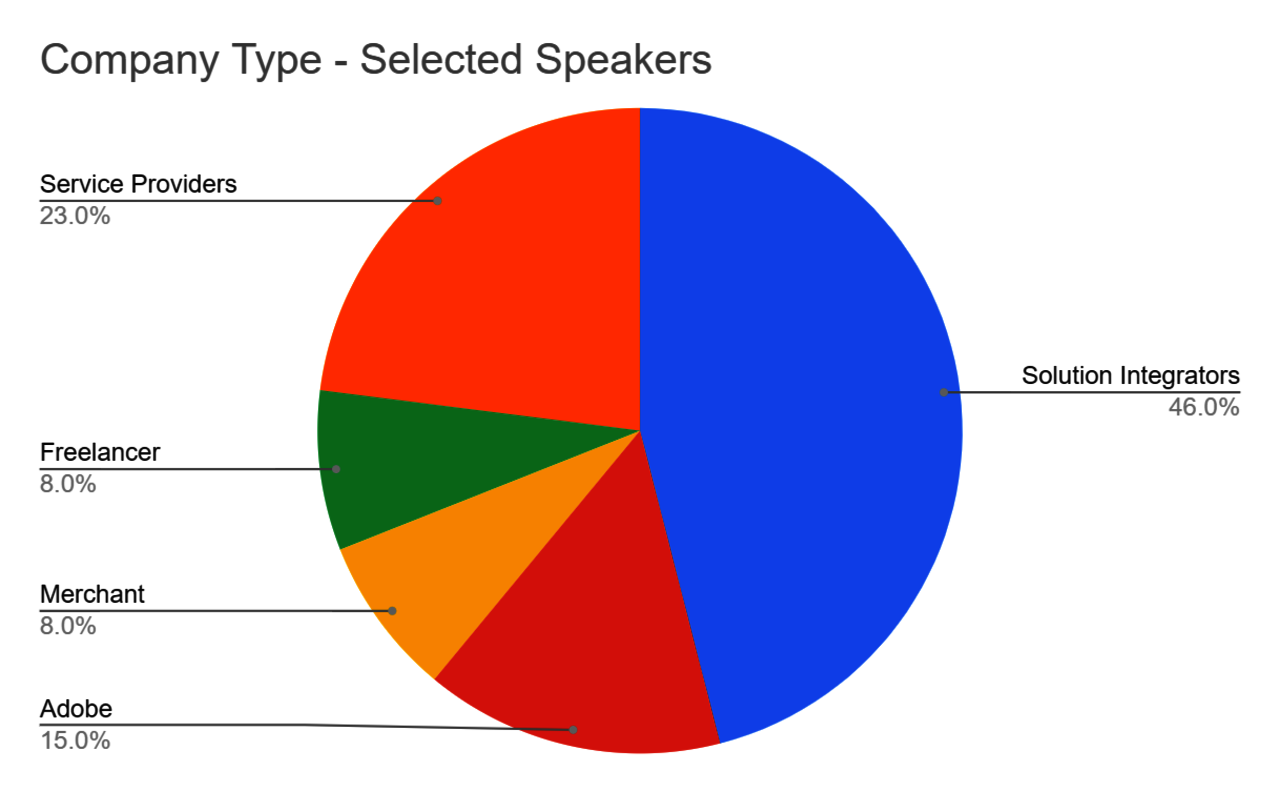
Geography
- Submissions came from people residing in 12 different countries from five different continents.
- Selected speakers came from seven different countries across three continents.
Gender
Note: We did not ask people to enter their gender in the call for content form. These numbers are concluded based on names/images.
- Of submissions, 14% came from female speakers and 86% male.
- Among selected topics, 23% were from female speakers and 78% male.
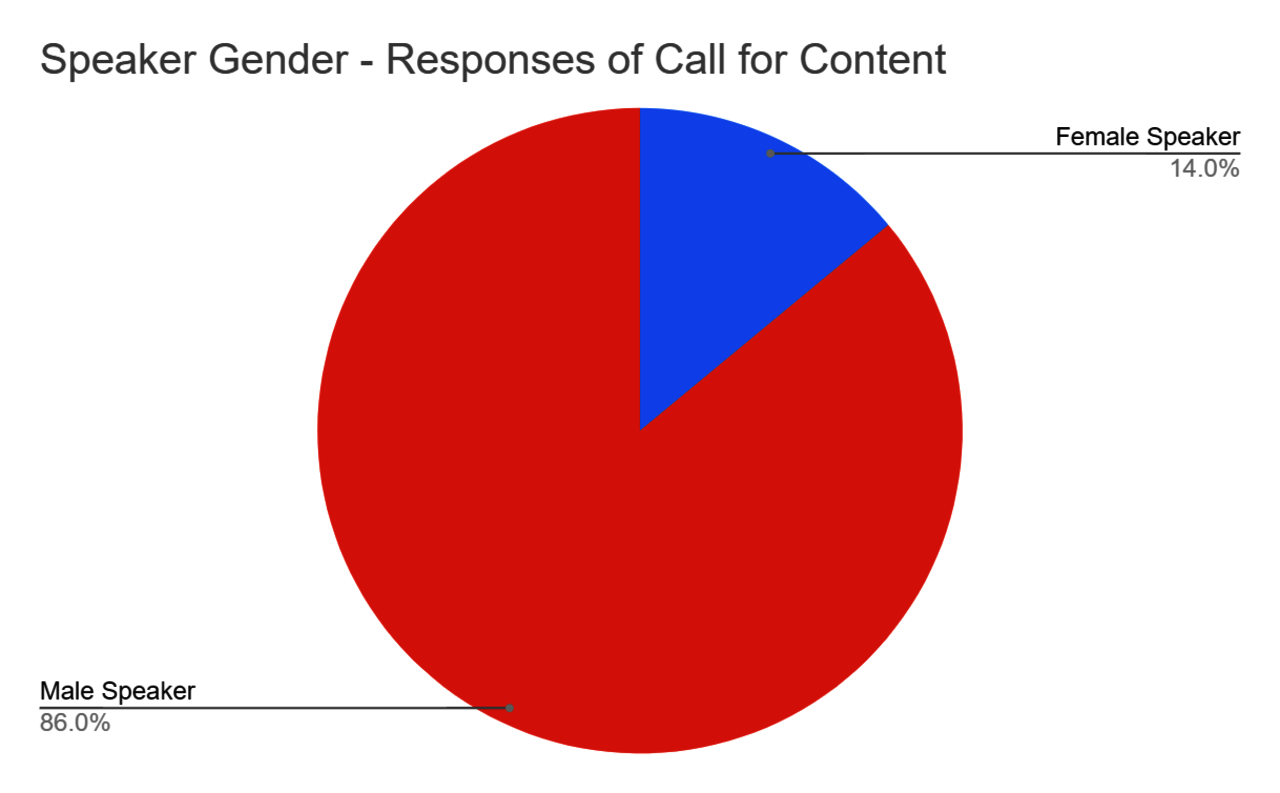
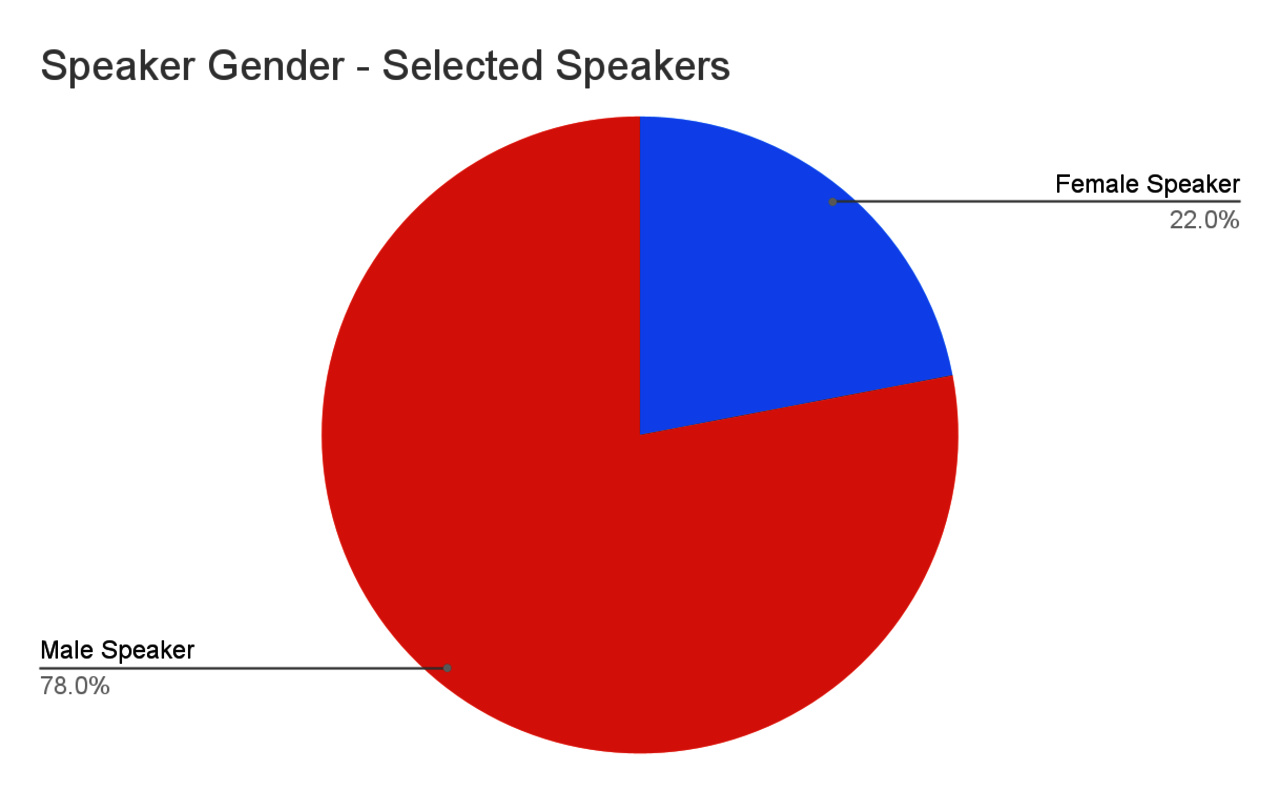
October 2021
Note: In October, we did not have a drop-down field to enter speaker experience in the Call for Content submission form. Instead, we asked submitters to describe previous speaking experience. These numbers are concluded based on listed speaking engagements (e.g., speaking at several Meet Magento events would qualify for “very experienced”, speaking at a meetup as “experienced”). Also, sponsor speakers and for Adobe sessions, as well as panelists, did not go through the Call for Content. As a result, most of their stats are based on data freely available online (e.g., LinkedIn profiles, etc.).
Speaker Experience
- Of those who submitted, 30% had previous speaking experience, with 53% identified as “very experienced”, and 17% had no previous experience in public speaking.
- 57% of the selected sessions were submitted by “very experienced” public speakers, while the remaining speakers broke down as 29% with “some experience” and 15% first-time speakers.
- For sponsored sessions and other curated content, 75% of speakers were “very experienced” and 25% had “some experience”.
Company Type
- Among the submissions, 63% came from solution integrators, 27% from service providers, 7% from Adobe, and 3% from merchants.
- Selected topics represented solution integrators by 71%, service providers by 14%, and both Adobe and merchants by 7% each.
- Sponsored and curated sessions and panels were – as expected – dominated by Adobe with 58%; 25% of these speakers and panelists work at solution integrators and 17% at service providers.
Geography
- We received submissions from people living in 11 countries across four continents.
- Selected speakers came from seven countries across three continents.
Gender
- 23% of submitted sessions were from female speakers.
- Of selected speakers, 29% were female and 71% male.
- 25% of sponsored or curated speakers/panelists were female.
What Do We Want To Do Better Next Time?
In April 2021, selected speakers had previous speaking experience. The assumption with reviewers here was that people with speaking experience often have a better understanding of how to convey a message to an audience or tell a compelling story — not just on stage, but in their submission. This led to an increased chance of a topic being selected. While it’s definitely not bad to have experienced speakers on stage, this may alienate newcomers or as-yet-undiscovered talents that the community would want to see present, too.
For 2022, we’d like to continue to see more submissions in the Call for Content from people without prior experience in public speaking. In order to achieve this, we may have to critically review our marketing of the Call and adjust messaging so that it is clear we welcome topics from speakers of all experience levels. We also plan to team up with other groups inside the Magento Association to help reach more people.
Merchants, who are such a vital part of our ecosystem, are underrepresented in our MA Connect lineup, which is something we hope to continue to correct. In October 2021, we organized a merchant-only roundtable to offer more value to merchants. This session was moderated by Andrew Figgins, a member of the MA Board of Directors who works for a merchant.
Where Are Our Blind Spots?
There may be other factors when it comes to the subject of speaker diversity that we are unaware of. If you have the impression that there is an issue we have neglected to date, please shed some light on our blind spot by emailing us to share more information.
Now, the Future Progress
Help us shape the future of MA Connect events! The committee is already making plans for the next edition of MA Connect in 2022, and you can take an active role in ensuring that 2022 events represent our diverse community. For example, we’re looking for people to help organize the event, moderate sessions, participate in speaker review/selection, promote the event, sponsor the event, or speak at the event. Email us to learn more.
If you want a primer on diversity and inclusion within virtual events, check out the recording of Sharon Lambert’s session from MA Connect. During the session, Sharon spoke about the benefits of diversity and inclusion, and also shared helpful tips for both event organizers and speakers on how they can make events more accessible and welcoming to all.
A big thank you to everyone who was involved with MA Connect in 2021. Much of the effort for these international events is executed by volunteers for MA that spend a lot of their free time to make it happen. Thank you to our speakers, moderators, sponsors, organizing team, and speaker selection committee!


